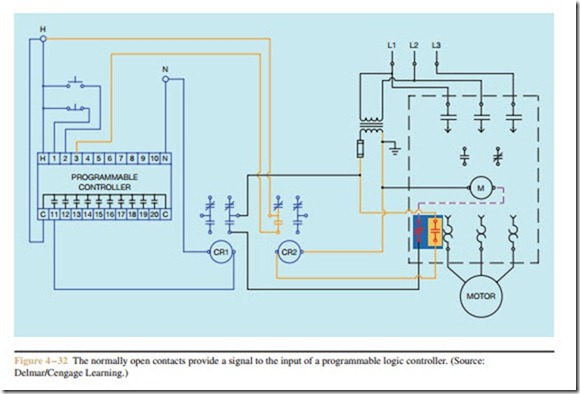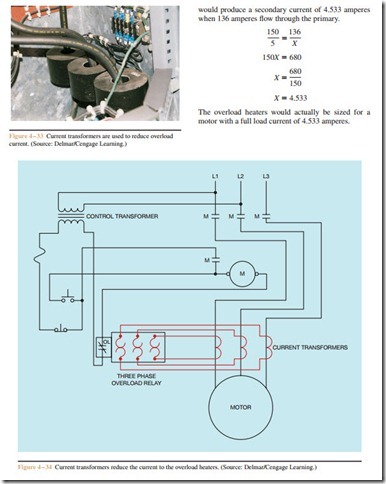Protecting Large Horsepower Motors
Large horsepower motors often have current draws of several hundred amperes, making the sizing of overload heaters difficult. When this is the case, it is common practice to used current transformers to re- duce the amount of current to the overload heaters (Figure 4 – 33). The current transformers shown in Figure 4 – 33 have ratios of 150:5. This means that when 150 amperes of current flows through the primary, which is the line connected to the motor, the trans- former secondary will produce a current of 5 amperes if the secondary terminals are shorted together. The secondaries of the current transformers are connected to the overload heaters to provide protection for the motor (Figure 4 – 34). Assume that the motor connected to the current transformers in Figure 4 – 34 has a full load current of 136 amperes. A simple calculation reveals that current transformers with a ratio of 150:5
Review Questions
1. What are the two basic types of overload relays?
2. What is the major difference in characteristics between thermal type and magnetic type overload relays?
3. What are the two major types of thermal overload relays?
4. What type of thermal overload relay can generally be set for manual or automatic operation?
5. Why is it necessary to permit a solder melting type of overload relay to cool for 2 to 3 minutes after it has tripped?
6. All overload relays are divided into two sections.
What are these two sections?
7. What device is used to sense the amount of motor current in an electronic overload relay?
8. What two factors determine the time setting for a dashpot timer?
9. How many overload sensors are required by the NEC to protect a direct current motor?
10. A large motor has a full load current rating of 425 amperes. Current transformers with a ratio of 600:5 are used to reduce the current to the overload heaters. What should be the full load current rating of the overload heaters?

